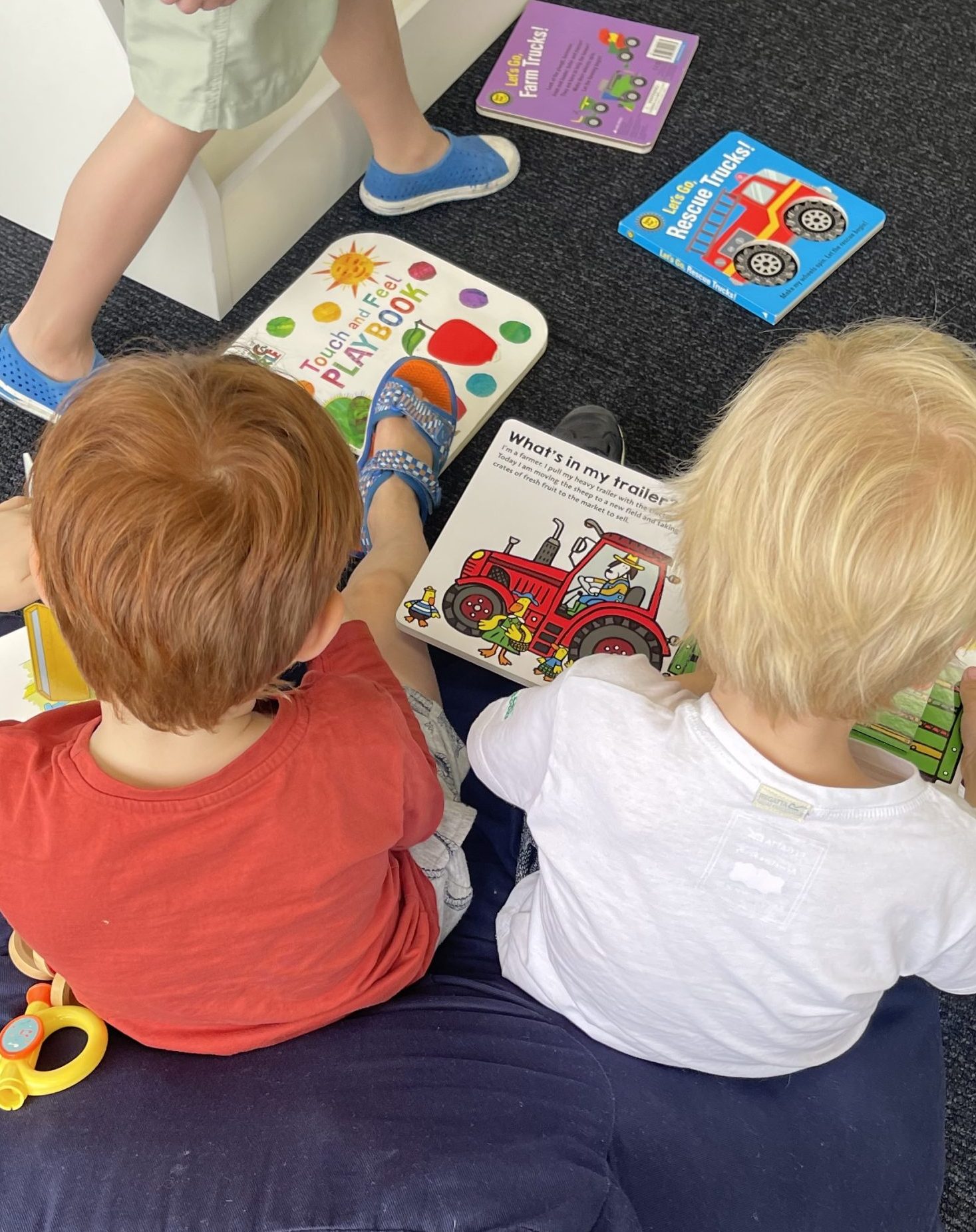
Books are magical tools that can help young children develop their language skills in many wonderful ways. Imagine opening a book and stepping into a world of colourful pictures, exciting stories, and interesting characters. For children, especially those who are just beginning to learn how to talk and understand language, books are an incredible adventure that brings both fun and learning. Let’s explore how books help young children’s language development in a fun and simple way.
Building Vocabulary
One of the most important ways that books help children is by building their vocabulary. When children listen to stories, they hear new words and phrases that they might not encounter in everyday conversation. For example, a book about animals might introduce words like “giraffe,” “zebra,” or “elephant.” A story about a trip to the beach could include words like “sandcastle,” “seashell,” and “waves.” By hearing these words in context, children learn what they mean and how to use them.
Improving Listening Skills
Listening to stories helps children improve their listening skills. When someone reads a book to a child, the child has to pay attention to understand what is happening in the story. This helps them learn to focus and listen carefully. Good listening skills are important for understanding instructions, following conversations, and learning new information.
Enhancing Understanding of Language
Books also help children understand how language works. Through stories, children learn about sentence structure, grammar, and how words fit together to make meaning. For example, they learn that sentences start with a capital letter and end with a period. They also see how different types of sentences, like questions and exclamations, are used.
Encouraging Imagination and Creativity
Books encourage imagination and creativity, which are closely linked to language development. When children listen to stories, they imagine the scenes, characters, and events in their minds. This imaginative play helps them understand and use descriptive language. For instance, they might learn to describe a dragon as “big,” “scaly,” and “fierce” or a princess as “kind,” “brave,” and “smart.”
Developing Narrative Skills
Narrative skills involve the ability to tell a story, and books are perfect for developing these skills. When children hear stories, they learn about the structure of a narrative: beginning, middle, and end. They understand how characters develop, how problems are introduced and resolved, and how events are connected. This helps them to tell their own stories and understand the stories they hear from others.
Boosting Memory and Recall
Reading books helps boost children’s memory and recall abilities. As they listen to a story, they remember the sequence of events, the names of characters, and the details of the plot. This practice of remembering and recalling information is important for overall cognitive development and helps children learn to organise their thoughts.
Promoting Interaction and Communication
Books are a great way to promote interaction and communication between children and their caregivers. Reading together can be a bonding experience where caregivers can ask questions about the story, encourage the child to predict what will happen next, and discuss the characters and events. This back-and-forth conversation helps children practice using language in a meaningful context.
Introducing Concepts and Knowledge
Books introduce children to a wide range of concepts and knowledge. They can learn about different cultures, historical events, scientific facts, and much more. For example, a book about space can teach them about planets, stars, and astronauts. A book about cooking can introduce them to different ingredients and cooking methods. This broadens their understanding of the world and gives them the language to talk about various topics.
Fostering a Love of Reading
When children enjoy books, they develop a love of reading that can last a lifetime. This love of reading encourages them to explore more books, which in turn continues to develop their language skills. When children are excited about books, they are more likely to pick up new words, understand complex sentences, and engage in conversations about what they’ve read.
Supporting Emotional Development
Books also support emotional development, which is closely related to language. Through stories, children learn about different emotions and how to express them. They see characters experiencing joy, sadness, anger, and fear, and they learn the words to describe these feelings. This helps them communicate their own emotions more effectively.
In conclusion, books are incredible tools for developing language skills in young children. They build vocabulary, improve listening skills, enhance understanding of language, encourage imagination and creativity, develop narrative skills, boost memory and recall, promote interaction and communication, introduce new concepts and knowledge, foster a love of reading, and support emotional development. By making reading a fun and regular part of a child’s life, we can help them grow into confident and effective communicators. So, let’s grab a book, snuggle up, and embark on a delightful journey of words and stories with our little ones!
We’re here to support you
At OneOnOne Children’s Therapy, we believe that every child deserves the opportunity to grow and thrive.
Our clinics are not just a space for therapy – it’s a place where children can discover their strengths, overcome challenges, and reach their full potential.
By combining innovative therapy techniques with a stimulating and supportive environment, we’re proud to offer a holistic approach to paediatric therapy and early intervention that addresses the unique needs of each child we support.
Reach out for support
If you’re concerned about your child’s language development or want to learn more about how Speech Pathology can help your child, OneOnOne Children’s Therapy is here to help. Our Speech Pathology assessments will tell us if your child needs help.
Call our Bondi Junction and Mascot clinics on (02) 80657837 or email. You can book a free 30 minute phone call with us to discuss how we can support your child’s unique journey
